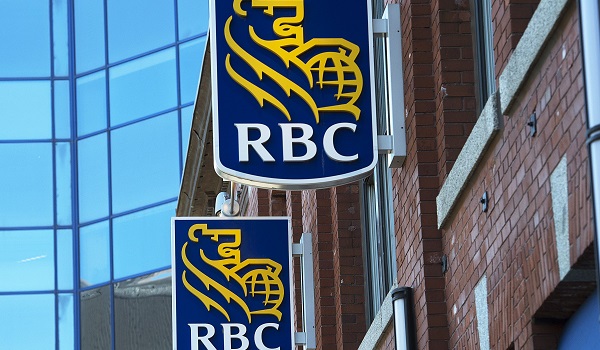RBC’s Q3 profits surpasses analysts’ estimates
Royal Bank of Canada’s quarterly profit came in well above analysts’ estimates, as it set aside less money than anticipated for soured loans and reported strong numbers for its Canadian business.
The Toronto-based bank’s fiscal third-quarter profit rose to $4.48-billion, or $3.09 per share, for the three months that ended July 31. That was up from $3.86-billion, or $2.73 per share, from the same quarter the previous year.
Adjusted to exclude certain items, RBC said it earned a record $3.26 per share, which was well above analysts’ consensus estimate of $2.95.
RBC, Canada’s largest bank by market capitalization, increased its quarterly dividend to $1.42 per share, up from $1.38 in the previous fiscal quarter and 7 cents higher than the same period in the previous year.
Provisions for credit losses, or money the bank sets aside to cover bad loans, were $659-million, up $43-million or 7 per cent from a year ago. The bank attributed the increase mainly to higher provisions in personal and commercial banking, offset by lower provisions in capital markets and wealth management.
The provision number came in below analysts’ estimates of $926-million. When a bank sets aside less money for future loan losses — an expense on the income statement — its earnings improve.
Banks make provisions both for loans where the borrower is making timely payments — called “performing” — and loans where the borrower has fallen behind, called “impaired.”
RBC’s provisions for losses on performing loans of $42-million decreased by $78-million, or 65 per cent from a year ago.
Meanwhile, provisions for losses on impaired loans of $623-million increased by $124-million, or 25 per cent. The bank made higher provisions in its Canadian banking portfolios but lower provisions in capital markets.
RBC’s recent earnings are the first to include HSBC Bank Canada for a full quarter, which it acquired in late March in the largest domestic banking takeover ever recorded. HSBC contributed $239-million to RBC’s net income this quarter.
Royal Bank of Canada’s quarterly profit came in well above analysts’ estimates, as it set aside less money than anticipated for soured loans and reported strong numbers for its Canadian business.
The Toronto-based bank’s fiscal third-quarter profit rose to $4.48-billion, or $3.09 per share, for the three months that ended July 31. That was up from $3.86-billion, or $2.73 per share, from the same quarter the previous year.
Adjusted to exclude certain items, RBC said it earned a record $3.26 per share, which was well above analysts’ consensus estimate of $2.95.
RBC, Canada’s largest bank by market capitalization, increased its quarterly dividend to $1.42 per share, up from $1.38 in the previous fiscal quarter and 7 cents higher than the same period in the previous year.
Provisions for credit losses, or money the bank sets aside to cover bad loans, were $659-million, up $43-million or 7 per cent from a year ago. The bank attributed the increase mainly to higher provisions in personal and commercial banking, offset by lower provisions in capital markets and wealth management.
The provision number came in below analysts’ estimates of $926-million. When a bank sets aside less money for future loan losses — an expense on the income statement — its earnings improve.
Banks make provisions both for loans where the borrower is making timely payments — called “performing” — and loans where the borrower has fallen behind, called “impaired.”
RBC’s provisions for losses on performing loans of $42-million decreased by $78-million, or 65 per cent from a year ago.
Meanwhile, provisions for losses on impaired loans of $623-million increased by $124-million, or 25 per cent. The bank made higher provisions in its Canadian banking portfolios but lower provisions in capital markets.
RBC’s recent earnings are the first to include HSBC Bank Canada for a full quarter, which it acquired in late March in the largest domestic banking takeover ever recorded. HSBC contributed $239-million to RBC’s net income this quarter.
This article was first reported by The Globe and Mail













